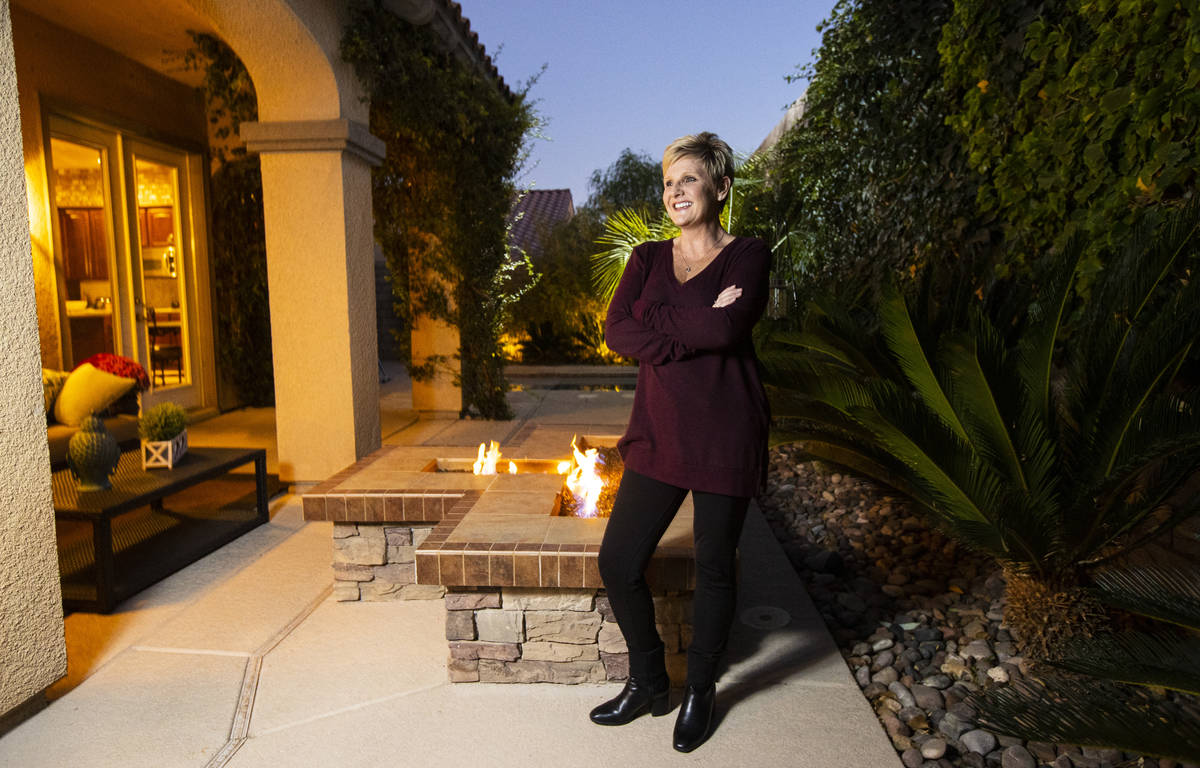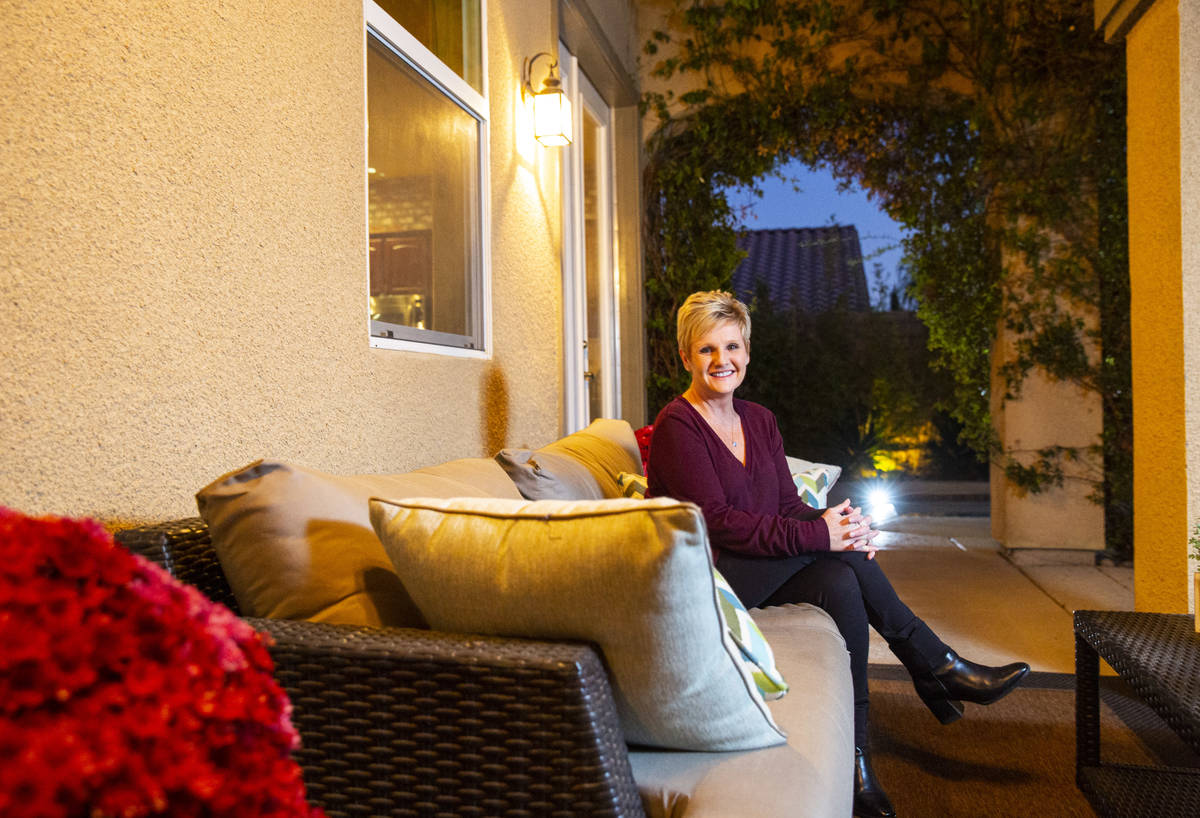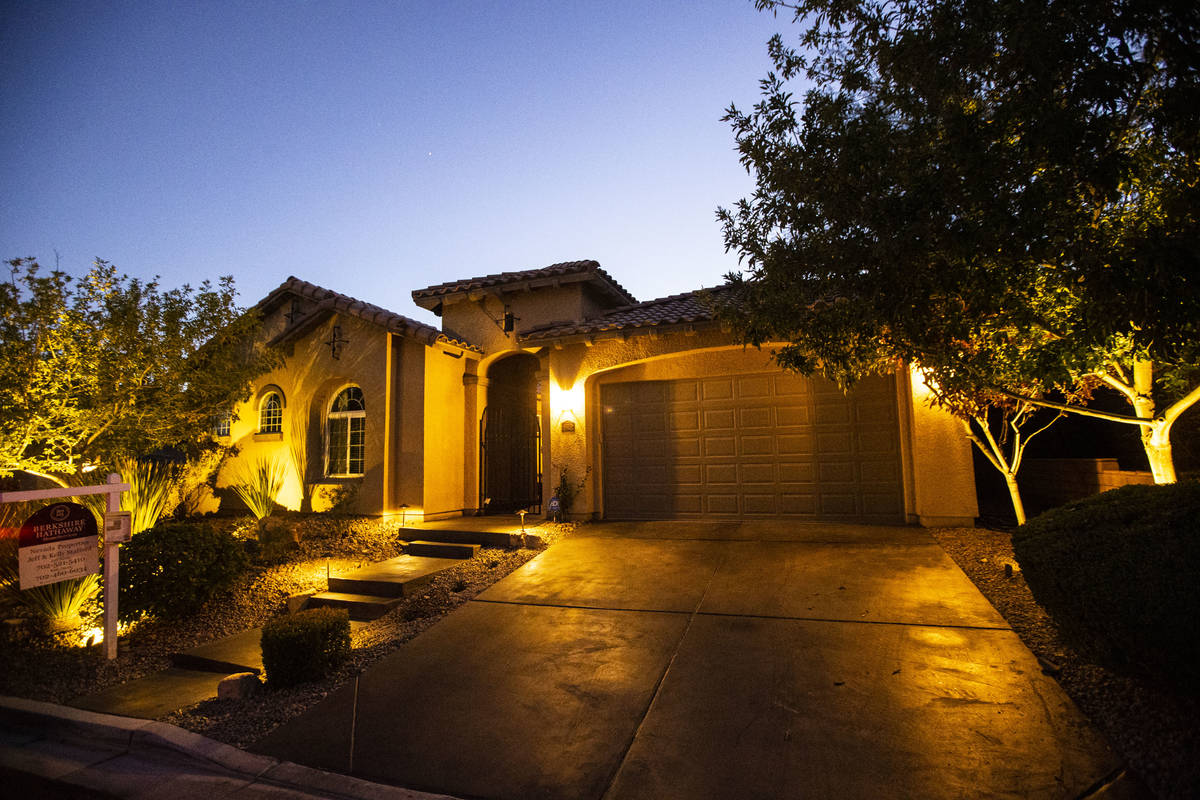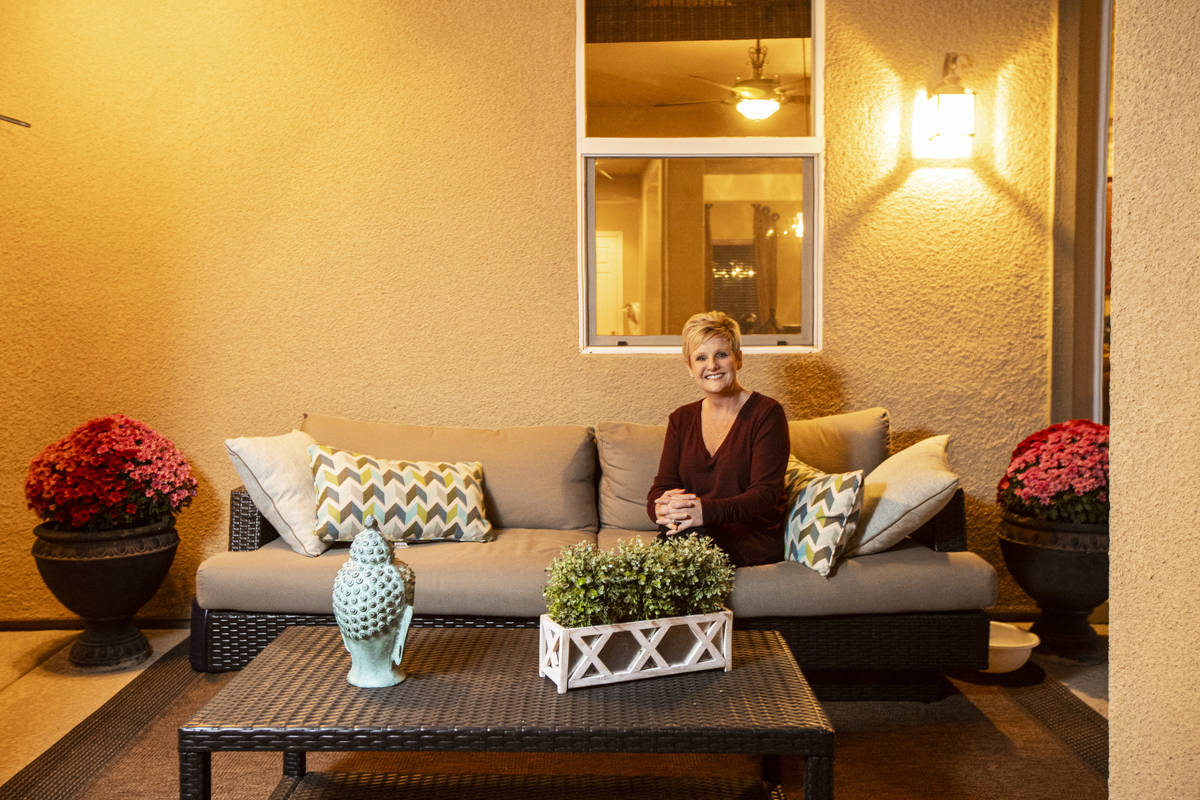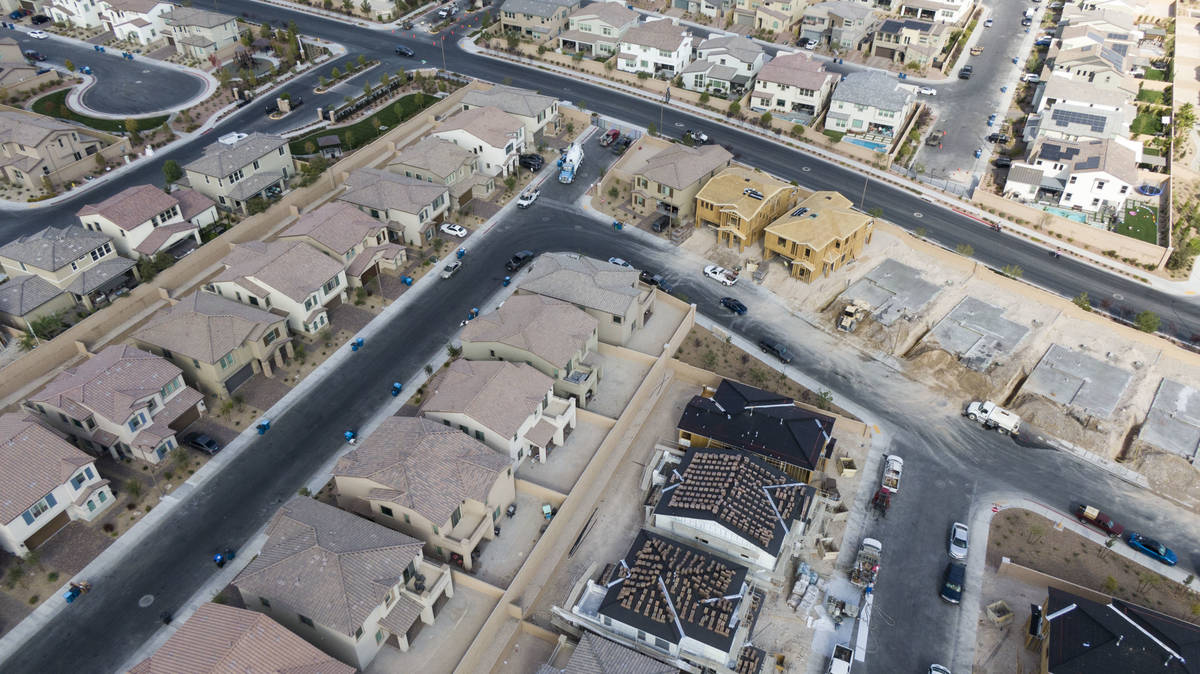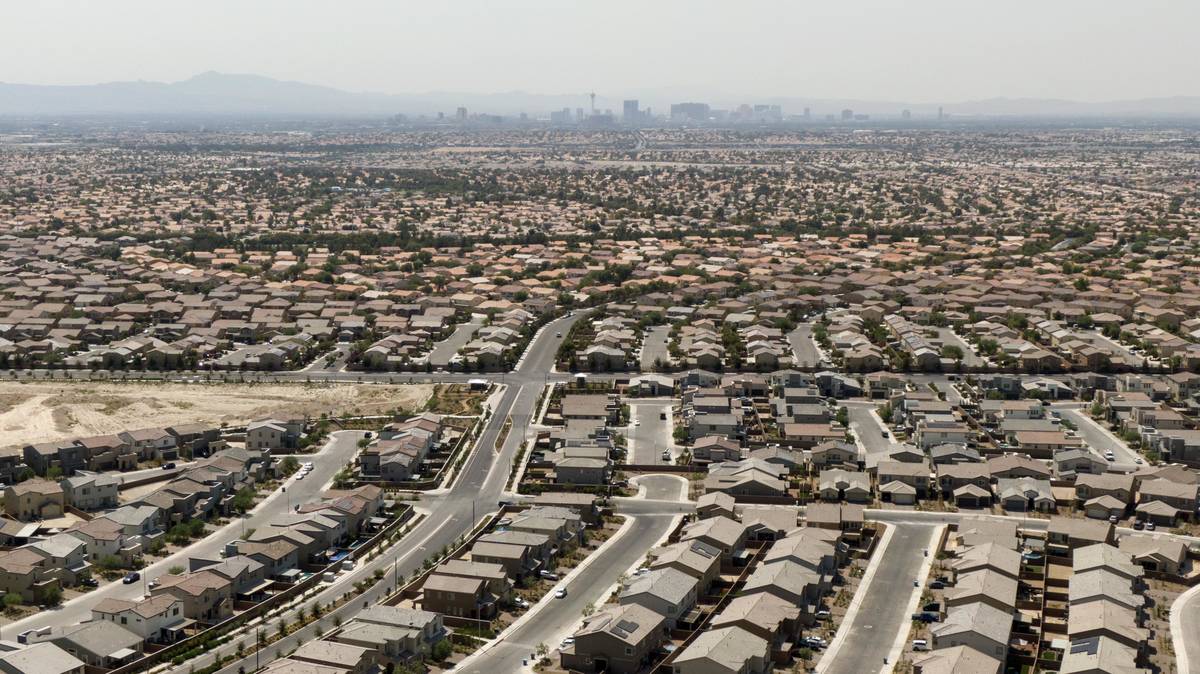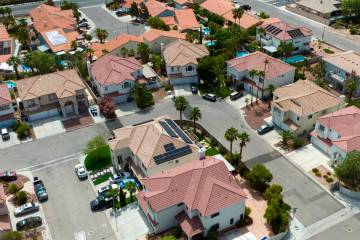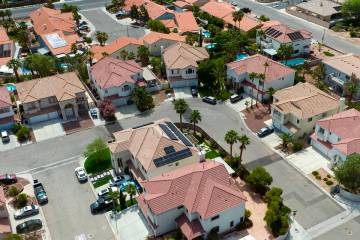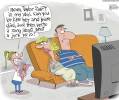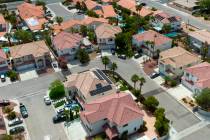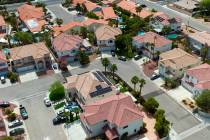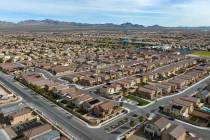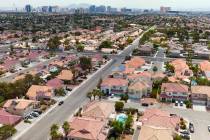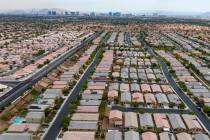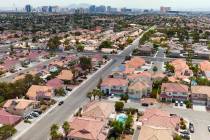Las Vegas’ housing market streak ‘makes no sense.’ Are we in a bubble?
When Mikey McNulty was house hunting a few months back, he learned of a place in Las Vegas that had everything he wanted. It was the right size, had a pool and a three-car garage and was in great shape.
The freelance photographer and videographer moved fast, making an offer within 12 hours of it getting listed — as did 10 other would-be buyers, he recalled.
The whole experience, he said, was “chaotic.”
Allyson Johnson, a Las Vegas attorney, recently got married and wanted a bigger place, so she put her house up for sale. She received two offers within days — and made her own offer on a house the day after she toured it.
The market, she says, reminded her of Las Vegas’ frenzied mid-2000s bubble.
“I had no idea there was that kind of competition out there for residential real estate,” she said.
Las Vegas’ housing market is defying logic. It has heated up with fast sales and a monthslong streak of record prices despite the bleak economy, raising the question locals often ask: Is the market in a bubble?”
‘It makes no sense’
Analysts and sales agents point out key differences between today’s hot streak and Las Vegas’ doomed housing craze of the past.
Some 15 years ago, easy lending fueled a rapid runup in property values, widespread house-flipping and a wild construction boom in Southern Nevada. The economy was strong, but when the bubble burst, Las Vegas was ground zero for the Great Recession as home prices plunged, construction largely stopped, and masses of people lost their homes to foreclosure.
Lending standards are stricter now, industry pros say. But with mortgage rates at record lows, buyers can lock in lower monthly payments and stretch their budgets for more expensive houses — all while Southern Nevada’s casino-heavy economy limps along, having been pummeled by the coronavirus pandemic.
Las Vegas’ unemployment rate, nearly 15 percent as of September, is the highest in the nation among large metro areas, and yet house prices have never been higher.
“It makes no sense,” Berkshire Hathaway HomeServices agent Christina Cova-Simmons said. “I think about this daily.”
Then and now
After the pandemic sparked sweeping business closures and other chaos in March, Las Vegas’ pipeline of home sales shrank rapidly. But the market recovered and has reached new heights multiple times this year despite the turmoil around it.
The median sales price of previously owned single-family homes — the bulk of the market — set a record for the fifth consecutive month in October, at $340,200, up nearly 11 percent year-over-year, according to trade association Las Vegas Realtors.
Prices are rising across the U.S. amid tight availability and record-low interest rates that have given people — at least those who are still working or otherwise have strong finances — the chance at affordable payments, according to Frank Nothaft, chief economist with housing tracker CoreLogic.
He didn’t say whether he thinks the market is overheated but noted that, unlike today, mortgage lenders during the mid-2000s bubble often didn’t verify borrowers’ income, employment or assets.
Buyers could list what they wanted on loan applications and easily obtain the funds, and as demand soared, so did prices.
In Southern Nevada, the median sales price of single-family homes topped out during the bubble days at $315,000 in mid-2006. Adjusted for inflation, that’s more than $400,000 in today’s dollars, underscoring just how bloated the market had become.
“If you could walk and chew gum, you got a mortgage,” Nothaft said. “It was terrible.”
Home values soon evaporated. Locally, the median sales price of a house tumbled to just $118,000 in early 2012, according to LVR data.
Nothaft doesn’t fear another wipeout this time around, given the differences between the growth spurts.
“I don’t expect anything like that to happen,” he said of the last crash.
Brian Gordon, co-owner of Las Vegas consulting firm Applied Analysis, said the low mortgage rates are giving people “greater buying power,” letting them spend more for a house than they would have a few years ago.
Prices are “certainly elevated,” and the market is moving “counterintuitively to the economy,” Gordon said, but that doesn’t necessarily mean a crash is looming.
“Could the market let some air out over the next year or two? That’s possible,” he said.
‘Insane’
It’s anyone’s guess how long the streak will last, or what the market will look like when it ends. The market still faces plenty of unknowns.
The pandemic has kept people home and away from crowds for fear of getting infected, devastating the tourism industry and threatening the foundation of Las Vegas’ economy: a place people visit from around the country and world, often by airplane, to eat, drink, gamble, party and network in close quarters with masses of others.
Las Vegas’ monthly visitor totals and gambling revenue are far below year-ago levels, and some resorts in the valley remain closed, despite being allowed to reopen in June following more than two months on state-ordered lockdown.
Moreover, the coronavirus outbreak is rapidly getting worse again, raising fears of another wave of shutdowns.
But for now, as people keep spending heavy amounts of time at home, there is still plenty of demand for houses.
On the resale market, buyers picked up 3,225 houses last month, up 11 percent from October 2019, according to LVR.
Cova-Simmons, of Berkshire Hathaway HomeServices, said she recently listed a home that landed a buyer within 24 hours and another house that was taken in three days. Both fetched their full price.
“It absolutely is insane,” she said.
Tim Kelly Kiernan, a sales manager with Realty One Group, said he feels bad because the tourism industry is hurting as real estate takes off. The former casino dealer has close friends who work in hospitality, and one who got laid off moved to Oregon for a new job.
At the same time, he’s seen people looking to buy bigger homes, smaller homes, or their first homes.
Given all the turmoil, no agent or brokerage firm “could have ever predicted” the market’s performance, Kiernan said.
“Never in a million years,” he said.
Contact Eli Segall at esegall@reviewjournal.com or 702-383-0342. Follow @eli_segall on Twitter.



